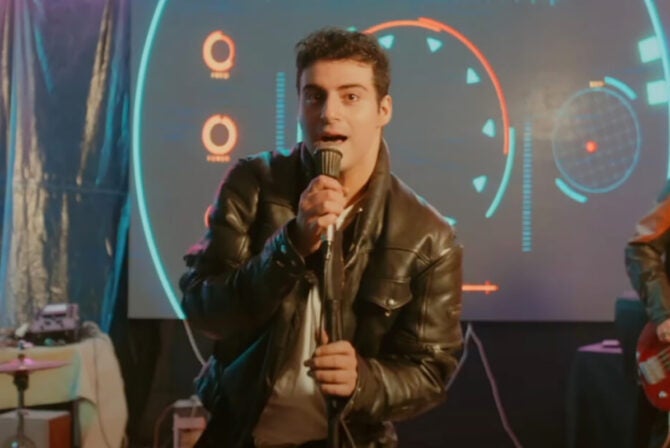Unless you live in the Hippie Mom Drum Circle that is my life, you may have never heard of Elimination Communication, otherwise known as EC, Infant Potty Training, or Natural Infant Hygiene (or total insanity, if you’re hearing about it for the first time).
EC, an ancient practice still used in developing countries in Asia and Africa, is a process of potty training an infant, starting from birth. However, it’s more about responding to a baby’s needs—that is, facilitating elimination—than about teaching a child to use the toilet, like traditional potty training. But it does end that way, so, bonus!
So here is what EC would look like for you or me: You carry around your baby in a carrier, starting at any age, even newborns. Babies are less likely to eliminate when against a parent’s body (theoretically!). When the baby starts to get fussy, you hold your diaperless bub over the toilet, sink, bowl, potty, or bush, if that’s how you roll. Make a cueing sound while the kiddo eliminates. Most people use a shushing sound for pees and a grunt for poops. Once your little nugget associates the sounds with “letting go,” you can take them to the bathroom and cue them to go at opportune moments. Easy, right?
Of course not. I read about EC during pregnancy and thought it was pretty bananas. No diapers? Running a baby to the bathroom every 20 minutes (I didn’t know anything about babies, cut me some slack)? It sounded like I’d be cleaning pee and poop off my clothes and floor every day (little did I know that I’d be doing that anyway).
Six months later, I started thinking about EC again. My son, like most babies, hated diaper changes. He would squirm and kick and scream and it was starting to get stressful. He also hated pooping in his diaper and would cry the minute it happened. So I read “Diaper-Free Baby” by Christine Gross-Loh and “Diaper Free: The Gentle Wisdom of Natural Infant Hygiene” by Ingrid Bauer, both of which I recommend highly. Both authors agree that EC shouldn’t stress you out. It can be done part-time, using diapers whenever you feel like it, starting at any age you feel comfortable with. There is no finish line and no competition. The only goal is to save some cash on diapers and foster a closer connection with your kid.
At 8 months old, my son started his EC journey. If your baby is anything like mine was, it’s pretty easy to tell when they have to or are already pooping. In my son’s case, it was a certain far-away look towards the middle distance. For others, it’s that beet-red pushing face (the one I imagine I wore throughout active labor). Once we saw “the look,” we would ask him to hold it and whisk him off to the toilet.
For the first two weeks or so, we would get there only to find that he had already gone. But he started to catch on; pretty soon there was only half a poop in the diaper, half in the toilet. By 10 months, he was only pooping on the toilet.
Next came the “communication” part of Elimination Communication. Despite my efforts at teaching him sign language, my son began letting us know he had to go by pointing towards the bathroom.
If this all sounds too easy, well, it was! But something was missing: peeing. When I think of how many hours I spent staring at my half-naked baby playing on a water-proof picnic blanket, searching vainly for any signal that he had to go, I still full-body cringe and reach for a glass of wine. Even doing EC part-time at that point was too much. I continued having my son poop on the toilet, and completely gave up on peeing and cloth diapered the rest of the time (cloth diapering is way more appealing when there’s no poop to scrape).
Looking back, I see that I put too much pressure on myself. I got too caught up with trying to do things “right.” I thought that not seeing my son’s pee signal meant that I didn’t know him well enough, that I wasn’t paying enough attention. I was driving myself crazy. But the really crazy thing is that I would do EC again in a heartbeat. Here’s why:
1. Diapers are expensive
Whether you use disposable or cloth, those babies are expensive! Even one less package of disposable diapers makes a difference.
2. Reduce waste
We have all heard about the landfills bursting with disposable diapers that take hundreds of years to decompose, but, thankfully, there are more biodegradable choices than there were in the past. Between this and the constant washing of cloth diapers, EC is a sure-fire way of reducing the environmental impact of diapering.
3. Diaper rash
Diaper rash is caused by diapers. Hence the name. Wearing undies, pants, or nothing at all reduces the chances of getting diaper rash to almost zero.
4. Happy babies
I personally have never known or heard of any babies who love wearing diapers. They are usually either trying to pull them off or fight you when you try to put one on.
5. Potty training sucks
My child was half-potty trained for a whole year. Just before his 2nd birthday, I finished the job, and man, did it suck. EC takes much longer than potty training, but it is MUCH less intense.
When I think back to that time, I realize there was so much more at stake than just whether my child learned to eliminate. If I had stopped torturing myself for a moment, I would have seen a child learning that he could trust his parents. A child learning that someone was there to respond to his needs. The bond I now share with my almost 5-year-old is strong enough to weather the storms of preschool, a minor but very scary surgery, and a life-changing move across the country. For this, I would go through it all over again. But I would eat, like, 50% more tacos, because tacos just make life better.
Read More:
Coming to Terms with Medical Termination
‘Do You Have Any Kids Yet?’ is a Question I Hope to Stop Hearing Soon
My ‘Invisible Illness’ Makes Me Feel Different from Other Moms







